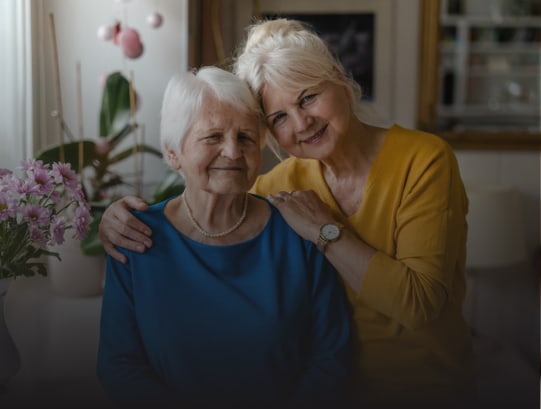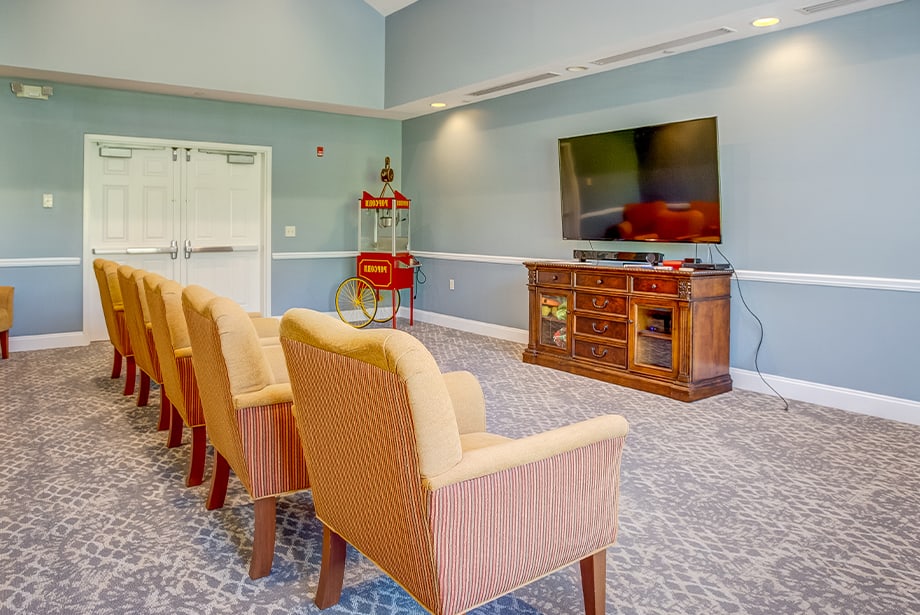Dementia is a complex and progressive neurological condition that often requires special care and affects memory, thinking, and the ability to communicate. For caregivers, friends, and family, finding ways to connect with loved ones on this journey is crucial for maintaining meaningful relationships. Open-ended questions are a great way to maintain a connection with a senior with dementia. Some open-ended questions to ask dementia patients include:
- Can you tell me about a favorite memory from your childhood?
- What do you enjoy doing most during the day?
- What are you most proud of achieving?
- What advice would you give to someone just starting their life?
Effective communication is not just about exchanging words—it’s a lifeline that can foster connection, spark joy, and bring comfort. The above questions, and a few more we’ll explore below, reveal how open-ended questions can transform our interactions with people with dementia.
The Challenges of Communicating with Someone with Dementia
Communicating with individuals with dementia can bring unique challenges. The disease can create barriers, making it difficult for those affected to express themselves or understand others. Memory loss, difficulty finding the right words, and confusion are common hurdles that can lead to frustration for both parties involved.
These communication challenges often stem from changes in the brain that impact cognitive functions. Short-term memory may fade, leaving individuals to rely on distant memories that remain vivid. Additionally, the ability to process complex sentences or abstract ideas can diminish, leading to misunderstandings or withdrawal from conversations.
The Power of Open-Ended Questions in Enhancing Communication
Open-ended questions are potent tools in dementia care. Unlike closed questions, which can be answered with a simple ‘yes’ or ‘no,’ open-ended questions invite elaboration and reflection. They encourage individuals to share their thoughts, memories, and feelings, creating a space for dialogue and mutual understanding.
By asking open-ended questions, caregivers can tap into the wealth of experiences that people with dementia still hold. These questions serve as keys that unlock doors to the past, allowing the individual to reminisce and recount stories that bring them joy and comfort. This approach fosters a sense of validation and respect, acknowledging the person’s identity beyond their condition.
Open-Ended Questions to Ask Someone with Dementia
Using open-ended questions effectively requires thoughtfulness and creativity. These questions focus on various aspects of life, encouraging storytelling and exploration of cherished memories:
- Can you tell me about a favorite memory from your childhood?
- What was one of the happiest moments in your life?
- Who was someone who had a significant influence on you and why?
- What do you enjoy doing most during the day?
- Can you describe a perfect day if you could do anything you wanted?
- What foods do you love most and why?
- How do you feel when you hear your favorite song?
- What brings you comfort when you’re feeling down?
- What are you most proud of achieving?
- Can you tell me about your family and what they mean to you?
- What qualities do you admire most in a friend?
- Can you share a funny or memorable story about someone you love?
- If you could travel anywhere in the world, where would you go and why?
- What advice would you give to someone just starting their life?
- What are your hopes for the future?
Tips for Asking Open-Ended Questions Effectively
While open-ended questions are beneficial, how they are asked can significantly affect the response. Here are some tips to ensure your questions lead to meaningful conversations.
Be Patient & Listen Actively
Allow time for the individual to think and respond. Be attentive to their answers and show genuine interest through eye contact and nodding. This reassures them that their words are valued.
Adapt Questions to Their Interests
Tailor your questions based on the person’s hobbies, past experiences, and current interests. This customization demonstrates care and makes the conversation more engaging.
Use Simple Language & Repetition
Keep questions clear and free of complex language. If needed, gently repeat or rephrase the question to assist understanding. Simplifying communication can alleviate frustration for both parties.
Encourage & Validate Responses
Acknowledge every answer with positive reinforcement. Even if the response is brief, validate their effort and thank them for sharing.
Create a Comfortable Environment
Ensure the conversation takes place in a quiet, relaxed setting, minimizing distractions. A comfortable environment helps individuals feel at ease and more willing to participate.
How Can Memory Care Support Your Loved One?
For those navigating the challenges of dementia, open-ended questions offer a pathway to meaningful interactions that honor individuality and preserve dignity. By inviting individuals to share their stories, caregivers, friends, and family members can unlock a treasure trove of memories, emotions, and experiences.
Using open-ended questions to encourage communication with seniors with dementia is typically a common practice within a memory care setting where professional caregivers are experienced in dementia care.
Call our team at The Enclave of Franklin today to book a community. We’d love to show you how we can support you and your loved one through the various stages of life.










